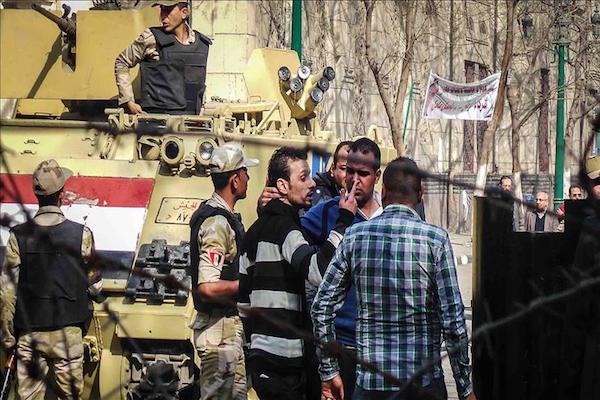The 18-day uprising in 2011 forced autocratic President Hosni Mubarak to step down after three decades in power. Although anti-regime demonstrations failed to materialize in the capital, limited protests were reported in the rural Fayoum, Beni Sueif and Mansoura provinces and in the coastal province of Alexandria.
Demonstrators carried Egyptian flags and banners reading, "The revolution goes on" and "Open the squares to protesters".
Throughout the country, Egyptian security forces cordoned off public squares and main streets and set up numerous checkpoints.
In Cairo’s Tahrir Square, meanwhile, the epicenter of the 2011 uprising, small knots of people turned out to voice their support for Egypt’s military-backed regime.
"The army and people are one hand," they shouted. Others chanted, "Long live Egypt."
At one point, a handful of policemen distributed roses to passersby to mark "Police Day" -- an Egyptian national holiday that coincides with the uprising’s anniversary.
Egyptian authorities also temporarily closed the Sadat metro station located near Tahrir Square.
Few calls were heard this year for demonstrations or rallies to mark the uprising’s sixth anniversary.
On Jan. 25, 2011, Egyptians took to the streets in massive numbers to protest corruption and police brutality, both of which had been widespread under the Mubarak regime.
Following 18 days of unabated protests, Mubarak was eventually forced to step down and hand over power to the Egyptian military.
One year later, Egyptians elected Mohamed Morsi -- a leader of Egypt’s Muslim Brotherhood group -- in the country's first-ever free presidential election.
After only one year in office, however, the military ousted and imprisoned Morsi amid mounting protests against his struggling administration.
Ever since, Egypt’s army-backed authorities have waged a relentless crackdown on Morsi’s supporters and members of his Muslim Brotherhood, killing hundreds and throwing tens of thousands behind bars.
In late 2013, Egypt’s post-coup authorities officially designated the Brotherhood a "terrorist organization", accusing it of carrying out attacks against Egyptian security forces.
The following year, Abdel-Fattah al-Sisi -- the army chief who led the coup against Morsi -- assumed power in elections marred by numerous irregularities.
The embattled Muslim Brotherhood, for its part, says it remains committed to peaceful activism with a view to reversing the 2013 military coup.



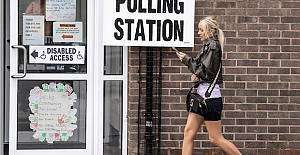 Advice for Enfield residents ahead of the General Election
Advice for Enfield residents ahead of the General Election Sunak promises tax cuts, economic stability, Conservative Party election manifesto
Sunak promises tax cuts, economic stability, Conservative Party election manifesto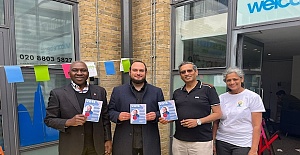 Ertan Karpazli, an independent MP candidate for the Enfield North constituency
Ertan Karpazli, an independent MP candidate for the Enfield North constituency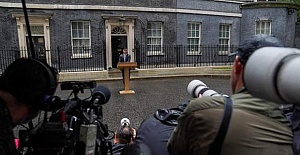 Rishi Sunak announces a general election in a statement outside Downing Street
Rishi Sunak announces a general election in a statement outside Downing Street Residents of Spanish island of Mallorca launch initiative to thank tourists amid protests over mass tourism
Residents of Spanish island of Mallorca launch initiative to thank tourists amid protests over mass tourism Srebrenica Remembered, Lessons for Justice and Peace! YEE London held a reflective event
Srebrenica Remembered, Lessons for Justice and Peace! YEE London held a reflective event British Premier Keir Starmer to reset UK-EU relations with high-profile meetings
British Premier Keir Starmer to reset UK-EU relations with high-profile meetings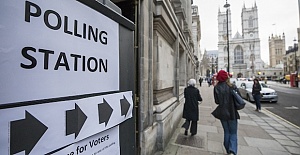 Voters head to polls for UK general election
Voters head to polls for UK general election The Swiss official will take charge of the match between Real Madrid and Atalanta in Warsaw
The Swiss official will take charge of the match between Real Madrid and Atalanta in Warsaw Applications are now open for Walking and Cycling Grants London until 9 September 2024
Applications are now open for Walking and Cycling Grants London until 9 September 2024  Two Circles also appointed as exclusive media sales agency for UEFA Women’s Champions League
Two Circles also appointed as exclusive media sales agency for UEFA Women’s Champions League  England manager Gareth Southgate has resigned two days after defeat by Spain
England manager Gareth Southgate has resigned two days after defeat by Spain Joyce and Snell's planning application gets stamp of approval
Joyce and Snell's planning application gets stamp of approval The amount of bounce back loans fully repaid is just %13
The amount of bounce back loans fully repaid is just %13 Petrol prices higher than they should be, says RAC
Petrol prices higher than they should be, says RAC UEFA and Mastercard renew UEFA Champions League partnership
UEFA and Mastercard renew UEFA Champions League partnership




